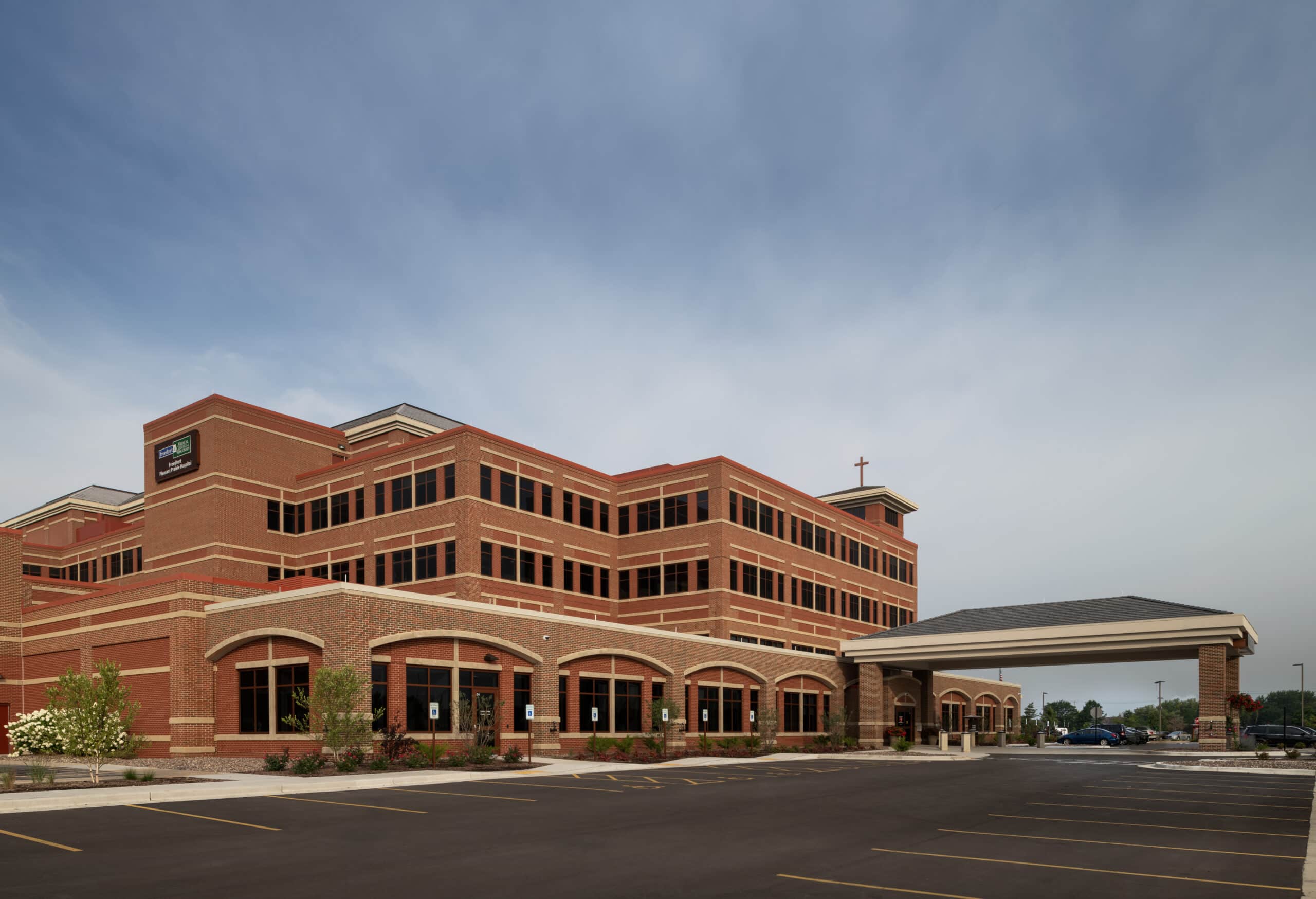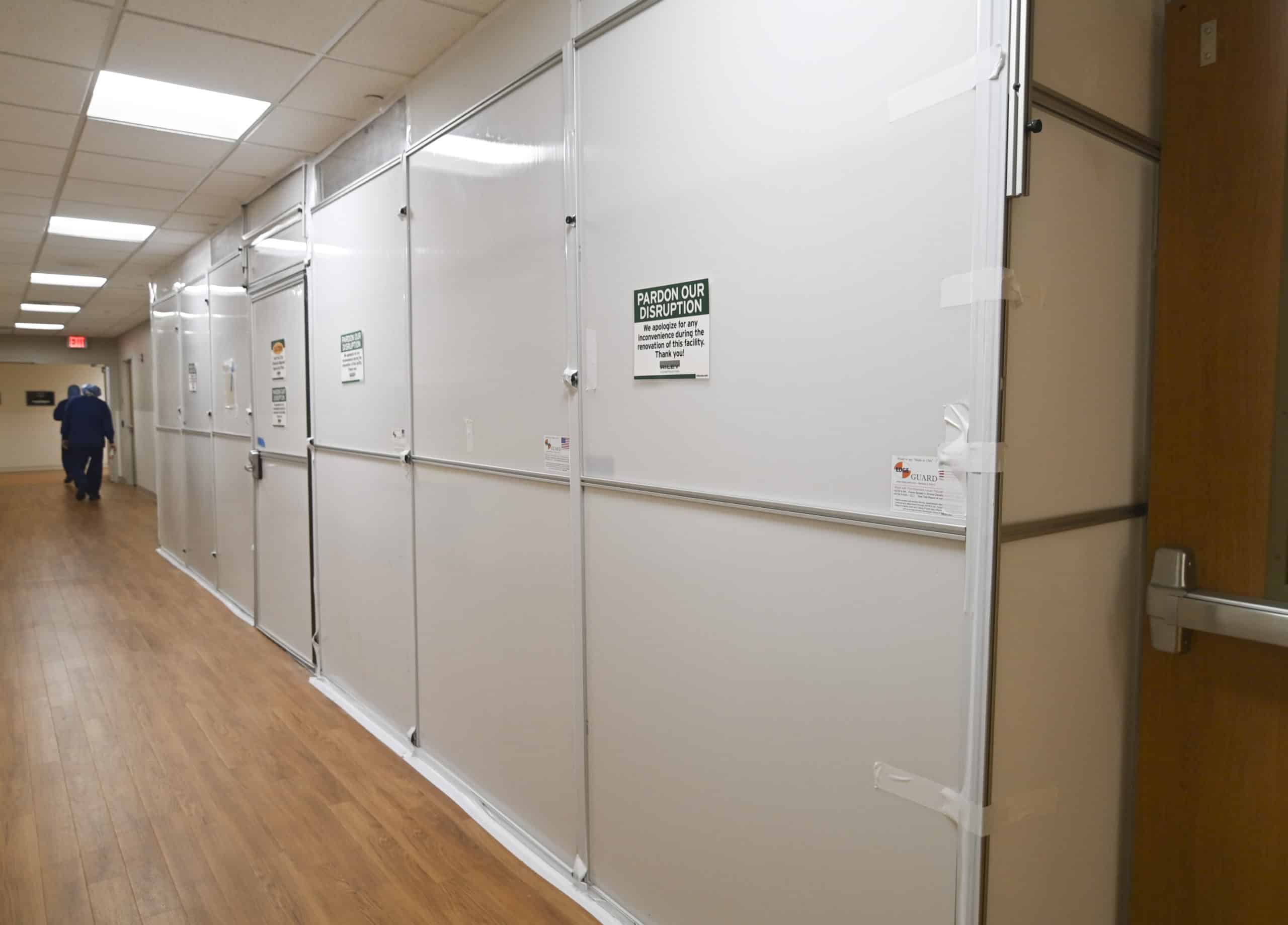- Construction Market Trends
- |
- Healthcare Construction Market Trends
- |
- Knowledge Base
Riley Provides Strategic Capital Planning for Healthcare Construction Projects
Healthcare construction remains steady as hospitals continue to invest in infrastructure, with 45% maintaining their budgets and 38% increasing them [1]. Networks are more strategic than ever in efficiently managing these projects as inflation, material and labor shortages, and supply chain issues impact both budgets and timelines.
Networks’ infrastructure investment decisions greatly impact patient care and healthcare delivery. This makes capital planning vital and helps ensure leaders appropriately earmark funding and prioritize projects. Riley Construction has extensive healthcare experience and is a trusted advisor on capital planning, preconstruction, and estimation services.
A robust planning process includes these three key elements.
Knowing When to Start
Healthcare organizations understand the importance of planning but also know building the bigger picture can be difficult. While leaders may know they need a patient care space or modality operational by a certain date, aligning all the steps from start to finish to meet their schedule can be challenging. Sometimes, a project that clients expect to be completed in six months could take much longer due to current market and equipment lead times. That means the project should be considered for a different year’s budget than originally anticipated. Projecting future costs is also a smart move but not an easy one. The earlier you involve your construction partner, the more detailed and accurate your budgeting process and project schedules can be.
Starting early can also have an impact on how much you can accomplish. It is common for healthcare networks to have a long list of necessary project features, but they lack certainty on when to implement each one. A knowledgeable planning partner with strength in preconstruction and estimating can help leaders make hard choices. By accurately projecting milestones and capital needs, projects can stay on schedule and on budget.
Riley understands the lead times and unique steps required for construction projects in the healthcare industry and has built approximately 5.5 million square feet of healthcare facility space. This experience helps Riley provide accurate timelines and guidance on a project’s beginning-to-end timing, including when to release funding, navigate the permitting process, and occupy and complete the space.
Understanding Logistics Reduces Costs
The recent 2024 American Society for Health Care Engineering’s (ASHE’s) Hospital Construction Survey found that for half of those surveyed more than 75% of recent projects saw cost increases and delays [2]. Getting the project scope right from the beginning and scheduling for long lead times on key components like electrical systems are crucial. Effective logistics planning reduces costs and the impact on other departments or the rest of the campus. Healthcare networks may need to carry out projects in phases, but sometimes this is less efficient and more expensive. Preconstruction analysis can help determine the best approach while considering potential interruptions.

Budgeting Accuracy with Smart Rates
Accurate estimates eliminate the need for late-stage value engineering and reduce the need to cut or remove project aspects to stay on budget. Relying on a “cost per square foot” budget based on similar projects can be misleading. Previous project costs alone do not lead to accurate estimates. Inflation and escalation of material or construction costs, as well as the unique attributes of each project, mean the square foot cost is dynamic.
Using Riley’s Smart Rates provides a more accurate representation of project costs for conceptual budgets sooner. Smart Rates reflect the current market costs while also considering the specific design elements of your project, the labor rate, production rate, material costs and quantities, equipment costs and more.
If a healthcare network is considering use case scenarios for the repurposing of underutilized spaces, Riley’s Smart Rates can quickly compare the construction costs of multiple patient care services. For example, a typical clinical setting for primary care can be compared against a behavioral health clinic’s cost. There are many factors that need to be considered and included in space planning budgets (anti-ligature finishes and accessories, modifications to door hardware and alarm systems, impact-resistant glazing, institutional fire sprinkler heads, damper-less ducts, tamper resistant light fixtures, etc.) to ensure that decisions are made with the most accurate and market specific information possible.
Master planning is an essential part of a healthcare organization’s long-term strategy. Networks must determine how to spend their dollars effectively while balancing infrastructure needs, evolving the patient care model, and staying on top of market trends. From initiatives like updating air exchange systems to addressing deferred maintenance or expanding existing departments, there are many competing needs and limited resources. Strong master planning and preconstruction help determine what is realistic for the coming year.
The stakes are high, so starting early and working with an experienced partner like Riley Construction will ultimately save on budget and ensure projects finish on schedule.
Learn more about Riley’s previous healthcare construction projects here. Reach out to Chris Meier, Project Executive at chrism@rcremote.local or Franz Lehner, Project Executive at franzl@rcremote.local to discuss how Riley can help on your next healthcare project.


